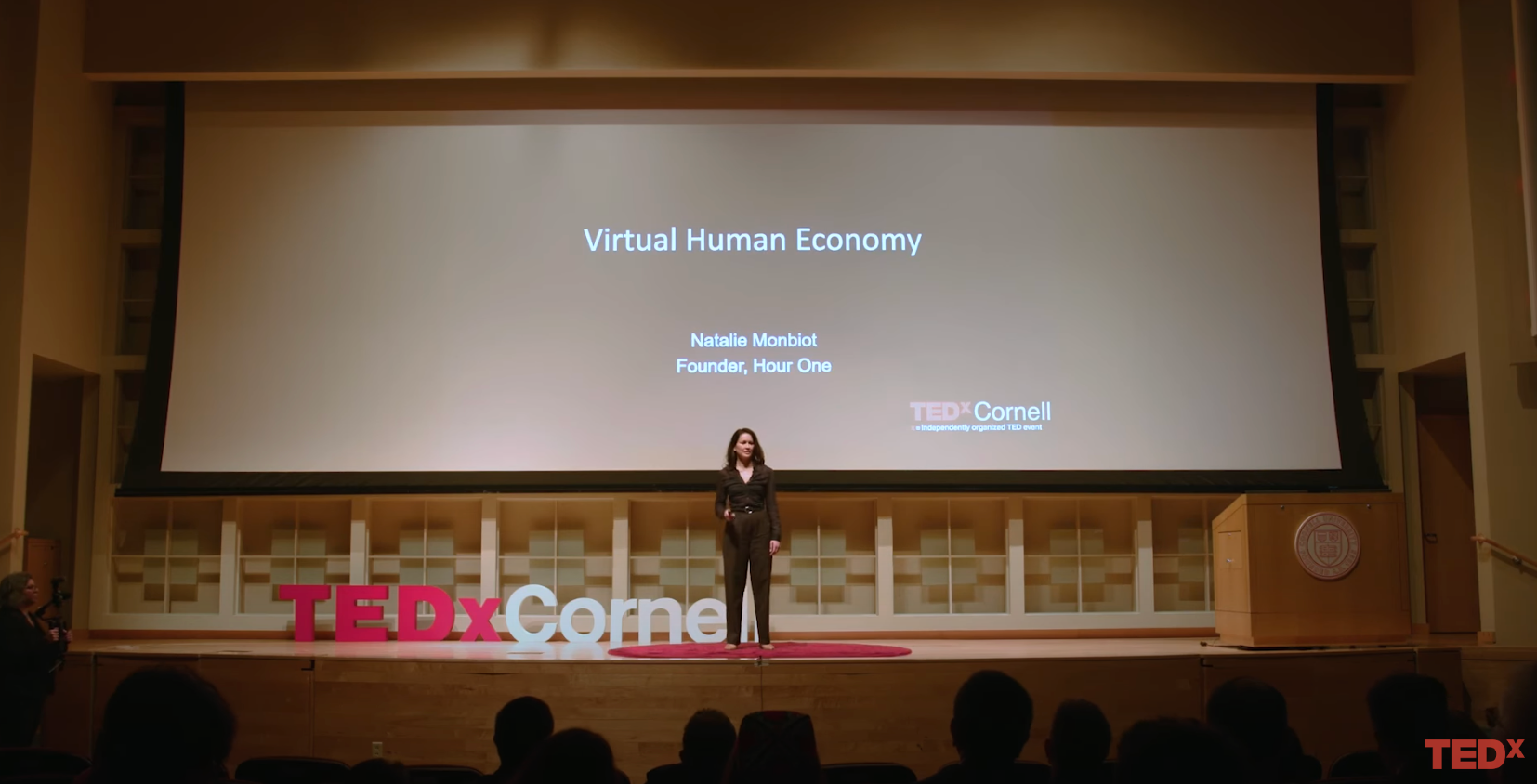Imagine tuning into your favorite podcast, but instead of just audio, you’re watching a video featuring hyper-realistic digital avatars discussing the latest tech trends. Their conversation flows naturally, their expressions are lifelike, and the content is tailored to your interests. Welcome to the world of AI-generated video podcasts – a revolution that’s redefining digital media as we know it.
This isn’t science fiction; it’s happening right now. Thanks to rapid advancements in artificial intelligence, we’re witnessing the birth of a new medium that combines the engagement of video, the convenience of podcasts, and the personalization capabilities of AI. It’s a game-changer for creators, brands, and consumers alike, promising to transform how we produce and consume content.
In this article, we’ll dive into the technological breakthroughs making this possible, explore the key players shaping this new landscape, and examine the implications for the future of digital media.
If you already know the backstory behind this cutting edge of content creation feel free to skip ahead.
How Did We Get Here?
Let’s take a step back and look at how this all came to be. The idea of AI creating content isn’t exactly new, but its rapid advancement in recent years? That’s a game-changer. This leap forward is thanks to some pretty impressive technological breakthroughs:
- Large Language Models (LLMs):
- Remember when AI struggled with basic sentences? Those days are long gone.
- Modern LLMs can generate coherent text, maintain context over long conversations, and even show a glimmer of what seems like reasoning.
- Generative Video AI:
- We’re not just talking about static images anymore.
- Today’s AI can create and manipulate video content, opening up new possibilities for visual storytelling.
- From deepfakes to AI-generated animations, the line between real and synthetic video is blurring.
- Prompt-Based Image Generation:
- AI can now create stunning images from text descriptions alone.
- These systems understand complex prompts and produce images that match specific styles, scenes, or concepts.
- It’s revolutionizing fields like digital art, design, and even conceptual planning.
- Neural Text-to-Speech:
- Forget those robotic voices of the past.
- Today’s AI voices sound incredibly natural, complete with emotional inflections and realistic pacing.
- It’s getting trickier to distinguish them from human voices.
The Current State of the Market
To say the market is booming is actually an understatement. The AI media and entertainment market is exploding:
- We’re looking at growth from $1.8 billion in 2022 to a whopping $8.4 billion by 2027. That’s a 36% compound annual growth rate.
- Over half of businesses are planning to ramp up their use of AI for content creation in the next few years.
- By 2025, three-quarters of enterprises are expected to shift from just testing the AI waters to diving in headfirst.
Why the massive growth? It’s simple:
- Efficiency: AI can churn out content faster than you can say “action!”
- Personalization: Imagine content tailored just for you. That’s what AI can deliver.
- Cost-effectiveness: Once you’ve got the AI up and running, it can create content at a fraction of the cost of traditional methods.
- Consistency: AI doesn’t have off days. It delivers the same quality, day in and day out.
Key Players to Watch
So, who’s leading the charge in this brave new world? Let’s meet some of the key players:
1. Google’s NotebookLM
Google’s thrown its hat into the ring with NotebookLM, an AI-powered note-taking and research assistant.
While it’s not directly creating video podcasts (yet), it’s laying the groundwork for how AI can transform dense information into engaging, conversational content. Imagine turning a dry research paper into a lively discussion – that’s what NotebookLM is all about.
2. Hour One AI
Hour One is taking things to the next level with our Cinematic Avatars and content templates. They’re creating digital doppelgangers of real people – think tech leaders like Reid Hoffman and Jensen Huang.
These personal AI avatars can appear in multiple formats simultaneously, from podcasts to social media posts. It’s like being in a hundred places at once, without ever leaving your chair.
Changing the Game
This AI revolution isn’t just changing how content is made – it’s transforming how we consume it, too:
- Creator Empowerment: Got a great idea but no film crew? No problem. AI tools are leveling the playing field, allowing anyone with a vision to create professional-quality content.
- Personalized Experiences: We all love content that feels like it was made just for us. With AI, that’s becoming a reality. It can analyze your preferences and serve up content that’s right up your alley.
- 24/7 Engagement: Brands and thought leaders can now maintain a constant presence across multiple platforms. It’s like having a clone of yourself, engaging with your audience round the clock.
Ethics and Privacy
Of course, with any big technological shift, there are challenges to navigate:
- Authenticity: As AI-generated content becomes more prevalent, we’ll need to grapple with questions of authenticity and trust.
- Copyright and Ownership: Who owns AI-generated content? It’s a thorny question that doesn’t have easy answers. At Hour One, we believe the content creator owns their own content and all individuals own their own AI Avatar. Meaning, you own your digital likeness and it can only be created and used with your consent.
- Job Displacement: There’s no denying that AI could disrupt traditional media production roles. But it could also create new opportunities we haven’t even thought of yet.
- Misinformation: The ease of creating AI-generated content could potentially be misused to spread false information. We’ll need to stay vigilant.
- Data Privacy: Creating personalized content requires data. Balancing personalization with privacy will be crucial.
What’s Next?
So, where is all this heading? Here’s what our AI expert at Hour One predict:
- Interactive Experiences: Imagine having a real-time conversation with a historical figure. With AI, that could become a reality.
- Hyper-Personalization: Content could be dynamically generated based on your mood, location, or even the weather outside your window.
- Cross-Platform Integration: We’re talking seamless experiences across all your devices and platforms. Your content follows you wherever you go.
- AI-Human Collaboration: Instead of replacing human creators, AI could become the ultimate creative partner, enhancing and amplifying human creativity.
- Emotional AI: Future AI might be able to read and respond to emotions, creating truly empathetic content.
- Virtual Worlds and Metaverse: AI-generated video podcasts could become a cornerstone of content in virtual worlds, offering immersive, 3D experiences.
The rise of AI-generated video podcasts isn’t just another tech trend – it’s a glimpse into the future of digital media. It’s a future that’s more dynamic, more immersive, and more personalized than we ever thought possible.
One thing’s for certain: AI-generated video podcasts are here to stay. The future of content is going to be wildly different from anything we’ve seen before.
And personally? We are thrilled to be a part of it.








